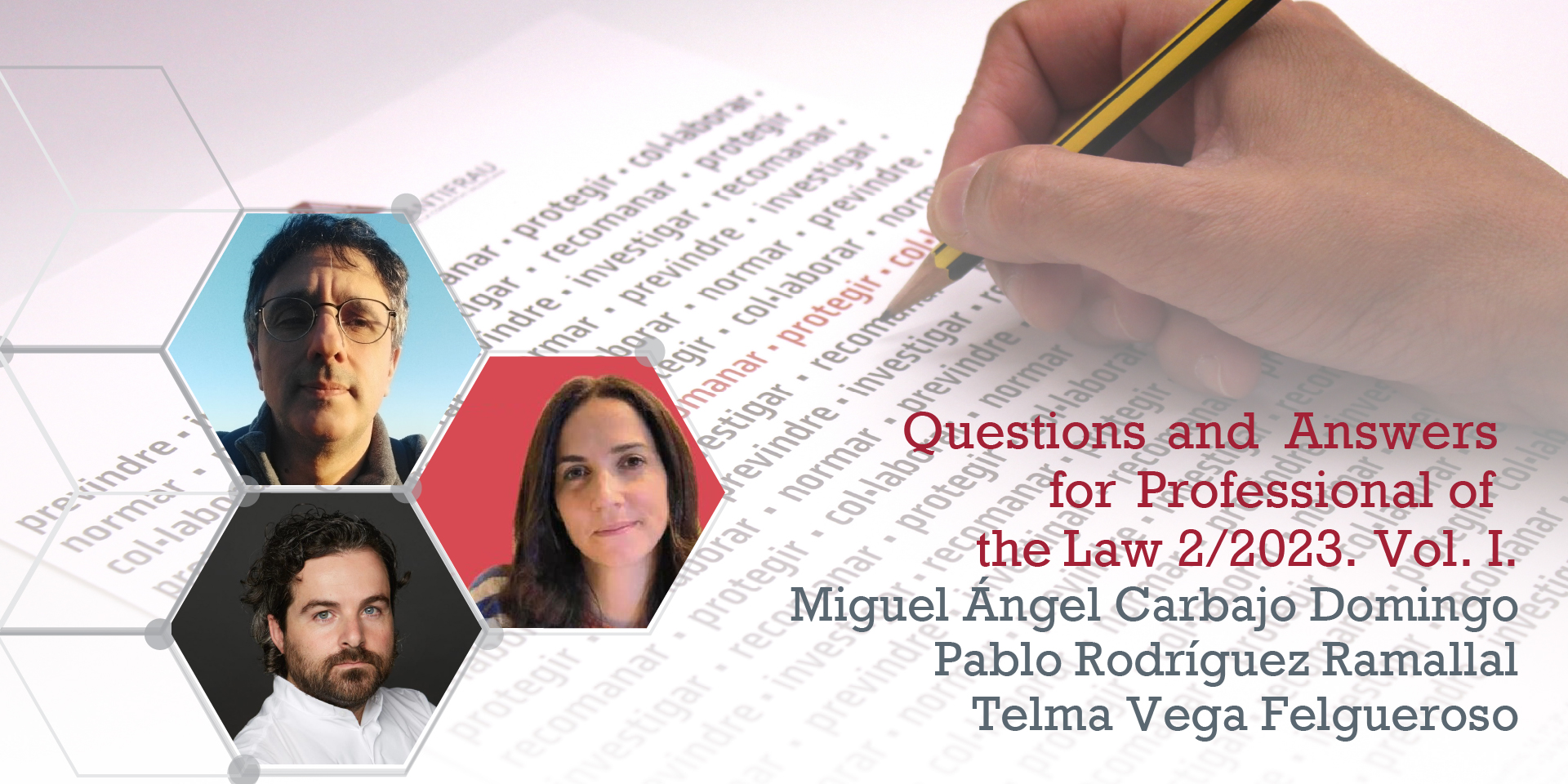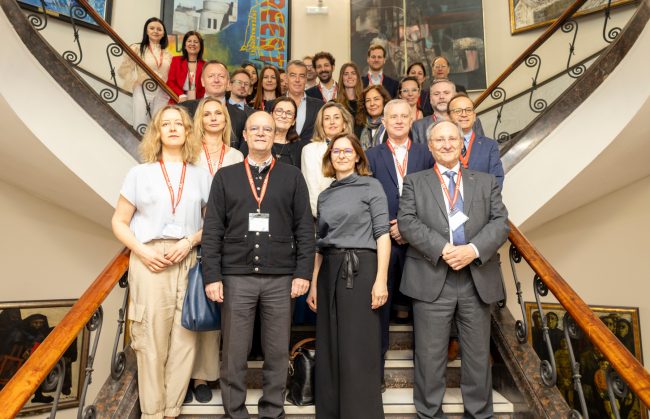Questions and Answers for Professional of the Law 2/2023. Vol. I.
Coordinated by Juan Vega Felgueroso, Lawyer of the Valencian Anti-Fraud Agency Law 2/2023, which regulates the protection of persons who report regulatory and anti-corruption breaches, has established a series of obligations and original investigation procedures that were previously unknown in our legal system. These novelties and the absence of normative and doctrinal references give rise to numerous doubts in the application of this Law by legal operators, a circumstance that advises the exposition and systematization of those aspects that offer greater doubts to these professionals in a series such as the one that begins today. The questions and answers for professionals that will be offered in this set of articles are a compilation of the doubts that are most frequently raised by those responsible for Information Systems, as well as by Lawyers of Public Administrations or by Lawyers in free and independent practice or, in short, by all legal experts. These questions and answers, without prejudice to their possible academic interest and for the public, are therefore eminently professional in nature, and they avoid historical explanations and extensive doctrinal debates to systematically and concisely establish the solutions to the gaps that arise from Law 2/2023. The series of questions, which will try to follow a homogeneity, begin in this first chapter with three topics of obvious importance for those responsible for the systems: First, the particularities of the expiry in the procedure of Law 2/2023 will be analyzed, which will be presented by Miguel Ángel Carbajo Domingo, Contentious-Administrative Magistrate, by answering the following questions: What is the deadline for fully processing the investigation file of Law 2/2023? Can this deadline be extended in order to fully process the investigation file? What happens if the investigation has not been initiated within three months of the complaint being made? What happens if the investigation proceedings had already been initiated within 3 months, but the procedure has not been completed within that period? Secondly, Pablo Rodríguez Ramallal, head of contracting and purchasing in a public company of the City of Gijón and lawyer of the ICAM expert in COMPLIANCE, will shed light on the new evidence of the interview with the affected party, an issue with which the legislator comes to include the principles of the Criminal Law, orality and concentration, in the administrative procedures of Law 2/2023, through the following issues: Is the new test of the interview with the affected party contemplated in all the investigation procedures of Law 2/2023? Is it imperative in all procedures to conduct an interview with the person concerned? What is the consequence for the investigation procedure if the person concerned is not interviewed? Finally, Telma Vega Felgueroso, Labour and Social Security Inspector in Barcelona, will respond to the problem regarding the scope of complaints in the field of labour law in Law 2/2023, and this by offering answers to the following questions: Should complaints of serious or very serious infringements with economic damage to Social Security be processed? Should complaints of minor infractions received through labour law reporting channels be processed in accordance with Law 2/2023? Do all complaints that are made in the field of labour law give rise to the protection of the complainant? Without further ado, here are these first 10 questions and answers for Law 2/2023 professionals. The expiry date in Law 2/2023. MIGUEL ÁNGEL CARBAJO DOMINGO. Magistrate of the Contentious Court 3 of Oviedo. Law 2/2023, due to the sensitivity and transcendence of the matters it deals with, has chosen to establish a rigid expiry system that must be taken into consideration by those responsible for information systems, both public sector entities (City Councils, Autonomous Communities, General State Administration, Universities, etc.), as well as by the Independent Authority for the Protection of Whistleblowers (AAI) or, where appropriate, the corresponding regional authorities or bodies. 1. What is the deadline for the full processing of the investigation file? The law establishes that, both in the regulation of the information management procedure of the City Councils, Autonomous Communities, AGEs, Universities, etc. (art. 9) and, where appropriate, in the procedure regulated for the AAI or regional authorities (art. 20), the term for the investigation file will be fully processed within 3 months from the receipt of the complaint, and in those cases in which the informant is not acknowledged (think of voice messaging systems or through postal mail) the period of three months will be counted from the period of 7 days from the date the complaint was made. 2. Can the deadline for the full processing of the investigation file be extended? In the case of information management procedures of the City Councils, Autonomous Communities, AGEs, Universities, etc., it is possible (art.9), but exclusively for another three additional months, and the reason for such extension must be justified and may only be based on the complexity of the investigation. On the other hand, there is no legal provision for an extension of the 3-month period for the AAI or regional authorities, which must in any case resolve the investigation procedures within 3 months (art.20). 3. What happens if the investigation has not been initiated within three months of the complaint being made? In this case, an investigation procedure can no longer be initiated in any case, and this is because there is a mandatory rule, the one contemplated in article 32.4 of Law 2/2023, which requires the suppression of complaints received that have not been processed within 3 months, and this both for the information received by the City Councils, Autonomous Communities, AGEs, Universities, etc., as the case may be for those received by the AAI or regional authorities. 4. What happens if the investigation proceedings had already been initiated within 3 months, but the procedure has not been completed within that period? In this case, contrary to the answer to question 3, if the investigation proceedings have been initiated within the 3-month period, but have not been resolved within that period of time, the file will expire and must be declared…






